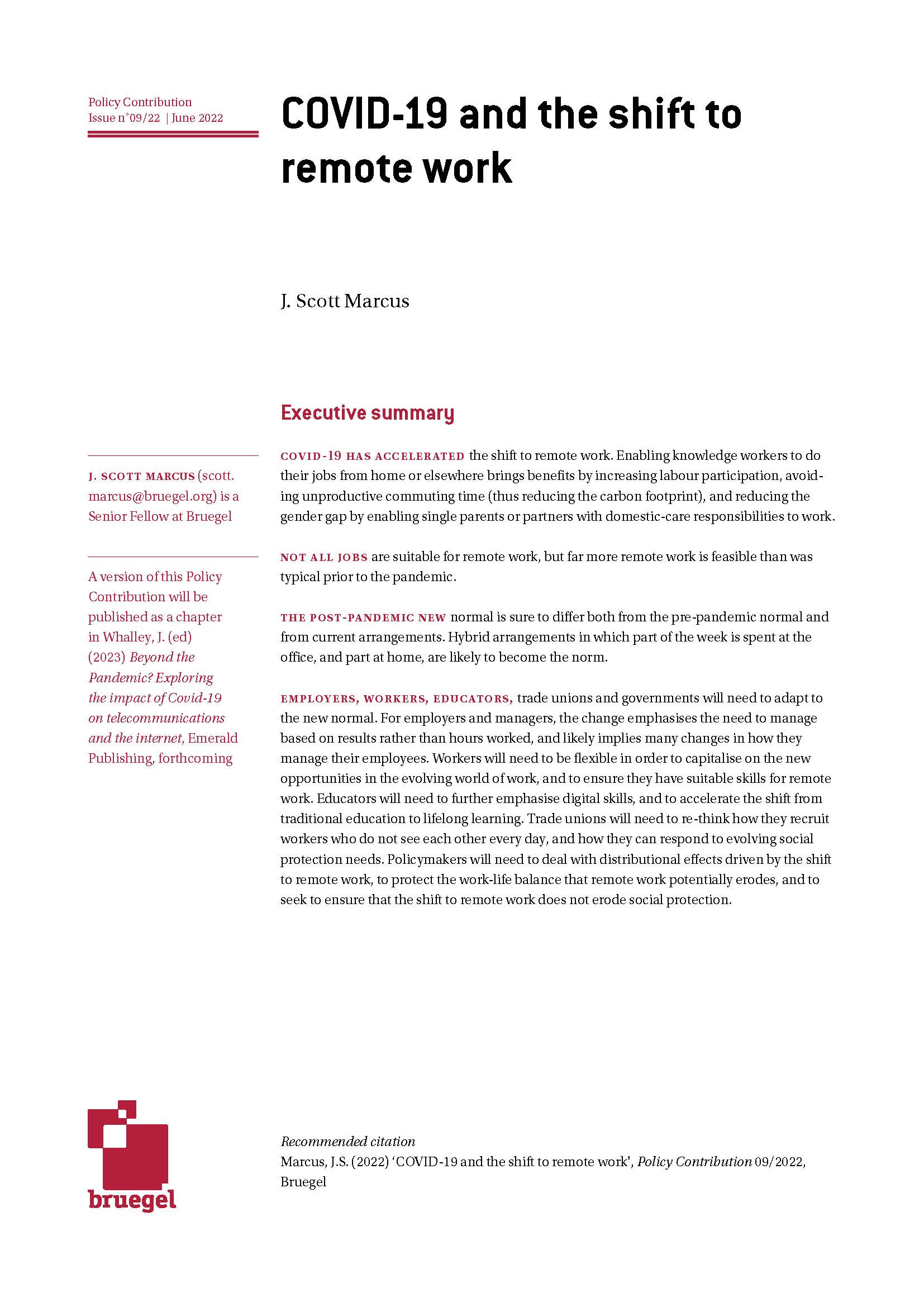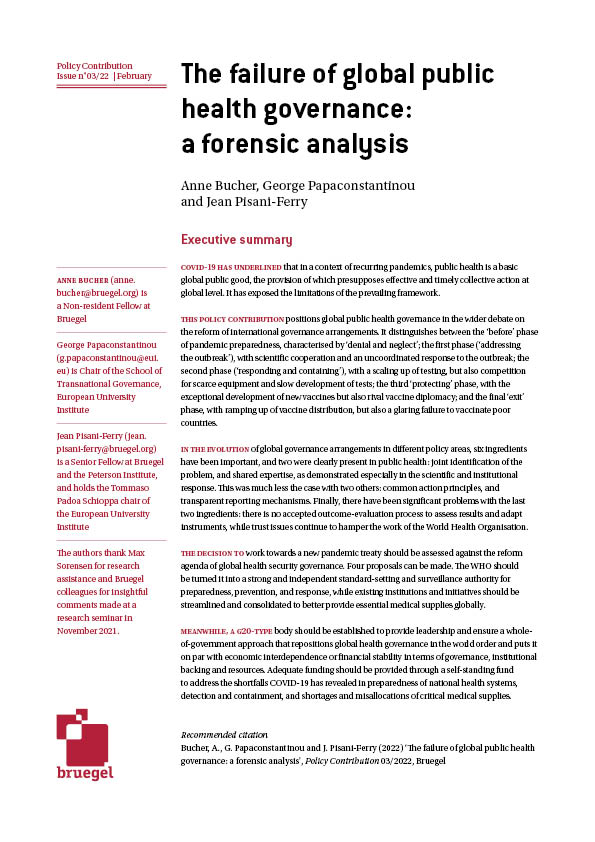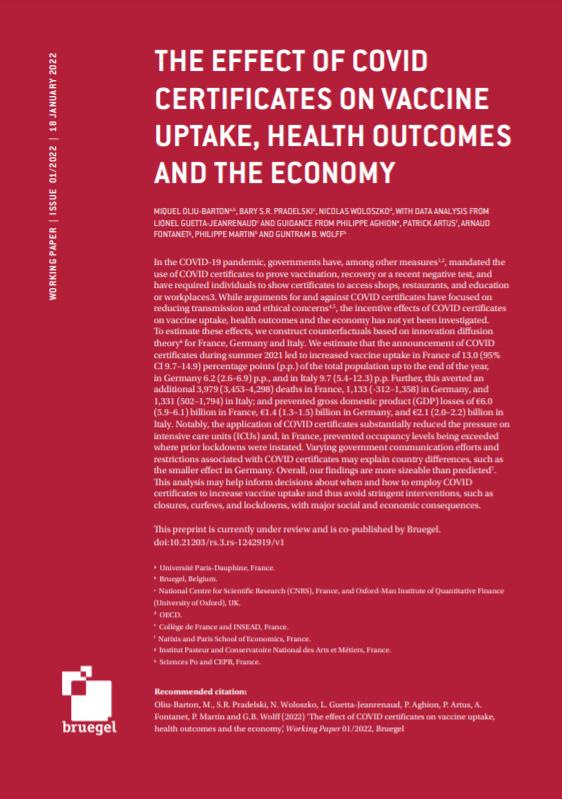Policy Contribution
COVID-19 and the shift to remote work
The post-pandemic new normal is sure to differ both from the pre-pandemic normal and from current arrangements. Hybrid arrangements in which part of the week is spent at the office, and part at home, are likely to become the norm.
A version of this Policy Contribution will be published as a chapter in Whalley, J., V. Stocker and W. Lehr (eds) (2023) Beyond the Pandemic? Exploring the impact of Covid-19 on telecommunications and the internet, Emerald Publishing, forthcoming
COVID-19 has accelerated the shift to remote work. Enabling knowledge workers to do their jobs from home or elsewhere brings benefits by increasing labour participation, avoiding unproductive commuting time (thus reducing the carbon footprint), and reducing the gender gap by enabling single parents or partners with domestic-care responsibilities to work.
Not all jobs are suitable for remote work, but far more remote work is feasible than was typical prior to the pandemic.
The post-pandemic new normal is sure to differ both from the pre-pandemic normal and from current arrangements. Hybrid arrangements in which part of the week is spent at the office, and part at home, are likely to become the norm.
Employers, workers, educators, trade unions and governments will need to adapt to the new normal. For employers and managers, the change emphasises the need to manage based on results rather than hours worked, and likely implies many changes in how they manage their employees. Workers will need to be flexible in order to capitalise on the new opportunities in the evolving world of work, and to ensure they have suitable skills for remote work. Educators will need to further emphasise digital skills, and to accelerate the shift from traditional education to lifelong learning. Trade unions will need to re-think how they recruit workers who do not see each other every day, and how they can respond to evolving social protection needs. Policymakers will need to deal with distributional effects driven by the shift to remote work, to protect the work-life balance that remote work potentially erodes, and to seek to ensure that the shift to remote work does not erode social protection.
Recommended citation:
Marcus, J.S. (2022) ‘COVID-19 and the shift to remote work’, Policy Contribution 09/2022, Bruegel











